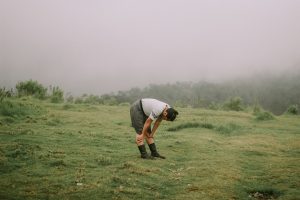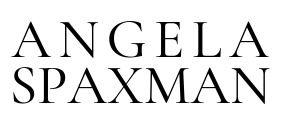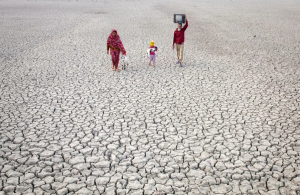For 50 years scientists have known that our modern society’s mode of living is unsustainable, leading to inevitable disaster. And yet, we have denied, avoided, covered-up and carried on. Only now that the pain of loss is beginning to be felt in ways that touch the richest and most powerful people on earth (that’s us) are we starting to wake up to the tragic patterns that were identified and confirmed decades ago.
In this context, the UN’s confirmation of the Inner Development Goals for sustainable development is important and this new approach holds huge potential. At last we are openly recognizing that we cannot change our outer world without changing on the inside.
I recall from a very early age reflecting on how human moral and ethical development was not keeping up with scientific progress. With our emphasis in the logical, heady, we have become increasingly insensitive to the body’s intelligence. We have rationalized the pain of loss of our heritage. We have ignored the soothing beauty and bounty of nature. We have debased the intelligence of human indigenous knowledge of natural patterns. We have pretended that our own creations are smarter than the billion-year-old creations of nature (of which we are a part).
“Chain!” I signaled the survey point to my partner in the brush below. We held tight our measuring cord, and I marked the spot at an even metre. Then letting my breath settle after the steep climb, I set down my axe and drew my flashlight from my pocket, pointing it back to my partner so he could take the compass and clinometer sightings as accurately as possible through the dense bush. Maneuvering through the ubiquitous thick salal that pulled at my arms and scuffed my face, I looked down the hill towards my partner, waiting. I glanced up for a few moments to appreciate the ancient cedar trees, thick at the base with bare spikes piercing the grey sky. The whole valley was quiet apart from the sound of my breath and my clothes moving against the brush. Through the trees I could see forested mountains, logged areas and the sea. My eyes moved higher and suddenly my gaze was met by a pair of eyes!
The small owl, perched on a sapling branch just a few feet above me, looked back. Suddenly I am not alone. Another being is in my world and I in his. His impassive face with large eyes invites my surprise… then awkwardness, self-consciousness. In this moment I still feel the importance of that look and the responsibility of being a human steward of the land that supports us.
If we want to keep the natural world that sustains us, the Inner Development Goals (IDGs) point us in the right direction. The IDGs declare the importance of our own view of ourselves in the world, how we think and the way we relate to, care for and collaborate with others. Seeing the IDG website for the first time, I felt a thrill of relief. The intelligence, care and leadership behind this project is inspiring.
But as I try to find ways to work with the IDGs, to learn them, use them and promote them, I find myself stuck.
The premise of the IDGs –mirroring the approach of the UN’s Sustainable Development Goals, seems to be that humanity can develop this set of skills and qualities, just like we can develop skills such as mathematical skills or language skills. I imagine the equivalent of a global-scale vaccination program to eliminate disease, as if teachers could reach every corner of the globe disseminating learning programs to inoculate us against environmental destruction. But the IDGs are not skills like reading, writing and arithmetic. They are perspectives: how we see. I already know how to see, and so do you.
“The basic human challenge is this: it’s difficult to learn, if you already know.”
–Amy Edmondson, Harvard Business School
We have a knowing-doing gap. We know what to do but we are not doing it. We need to change the way we see.
Take the first ID Goal and its first skill/quality, below.
![]()
![]() Having a deeply felt sense of responsibility and commitment
Having a deeply felt sense of responsibility and commitment
to values and purposes relating to the good of the whole.
This sense of responsibility is seen occasionally in the very young, and more commonly in mature people who have the luxury of time, space and self-reflection. It is not unacceptable to have this value system, but it is rare. How can we expect such a value to grow in enough people to make a difference to our climate emergency? This is particularly difficult in the typical stressed-out time-poor lifestyle of most modern people.
All of the 23 IDGs point to the need for a spiritual and cultural transformation. Can we achieve that by aiming at goals? This effort at inner change stands again the juggernaut of modern global consumer society teaching us that earning money and buying consumer product is the route to success and happiness.
Image by zhc, available on The Artling
IDG Goal #3 reveals another aspect to the change challenge that we face
![]()
![]() Being able to act in accordance with the needs of the situation
Being able to act in accordance with the needs of the situation
without concern for one’s own importance.
This goal seems appropriate for serious devotees rather than everyday people. And yet there are examples of human cultures who have operated with humility grounded in a higher purpose and who could see through the insanity of a civilization based on endless growth and self-centered consumption.
Wetiko is an Algonquin word for a cannibalistic spirit, a force driven by insatiable greed, appetite without satisfaction, consumption as an end in itself, and war for its own sake, against other tribes, species, and nature, and even against the individual’s own humanity. (In Ojibwa it is windigo, wintiko in Powhatan.) In certain Native American Indigenous communities there was a commonly-held belief that the European colonialists were so chronically and uniformly infected with wetiko that it must be a defining characteristic of the culture from which they came. They were right.
Our economic system is fundamentally dependent on growth. If the economy doesn’t grow it collapses into recession causing rising debt, job losses and poverty. No government expects to survive this kind of calamity and that’s what puts us in the double bind of needing to radically reduce our use of energy and materials in order to save our environment, while simultaneously requiring unending growth in order to feed our economic system.
“It is easier to imagine the end of the world than to imagine the end of capitalism.”
In the last decade, as climate effects creep closer into our awareness, the international community has pinned their hopes on the possibility of ‘green growth’. This approach assumes that by shifting to green technology and more service-oriented economic activities, we could continue economic growth without the related increase of resource usage and carbon emissions. This idea is embedded in the philosophy behind the Sustainable Development Goals. The assumption that we can endlessly grow our money economy saves us from needing to make the cultural changes that would upend the global power structure as well as our lifestyles. Unfortunately, despite a lot of looking, there is no evidence that it is possible decouple economic growth from resource usage. Environmental costs move around the world, but they do not disappear as the economy grows. They are inextricably linked. The IDGs are hinting but not directly admitting the reality that our global consumerist culture is the source of the problem. We must stop the capitalist train before it destroys us.
That somber revelation calls for a pause and a sigh.

Photo by Falaq Lazuardi on Unsplash
There is no magic bullet. It’s clear that what we’ve been doing over the past 50 years is not working. The question remains: how can we reduce the suffering we are likely to experience whether through environmental or economic collapse? (By the way, given the choice, I would opt for economic collapse since the human species has survived it many times before.)
This question points back to a well-known quote that has supported and motivated the creation of the Inner Development Goals. Gus Speth, former dean of the School of Forestry & Environmental Studies at Yale, said: “I used to think the top environmental problems were biodiversity loss, ecosystem collapse, and climate change. But I was wrong. The top environmental problems are selfishness, greed, and apathy.” Speth went on to say that “we need a spiritual and cultural transformation….”
What’s appealing about the IDGs is the sense of empowerment to do something that is fully within my own locus of control, my own feelings and responses to the world, and even within my own career path of self-development. And yet, we are all embedded in a system that does not support us to do what feels right. Consuming less, working less, earning less and caring more are all counter-cultural acts that risk disdain or suspicion from many friends and colleagues. And yet exactly those things are what can make a real difference rapidly and urgently.
We need aligned community to support each other. We need to learn together how to rapidly and radically let go of the lifestyle we have come to expect.
Consuming less, working less, earning less and caring more are all counter-cultural acts that risk disdain or suspicion from friends and colleagues.
The IDG Hub in Hong Kong is a small and growing group of Hong Kong-based consultants, coaches, teachers and healers who are experts in many relevant practices and frameworks that can move us towards a regenerative human culture. Convened by Noel Lam of Third Sector Connect, we have been meeting regularly to share our practices in small public workshops. While the extent of our global environmental challenge can feel overwhelming, and a small group of people doesn’t seem able to do much, it is what we can do right now.

